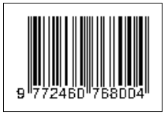Analisis Photoplethysmography Jarak Jauh dalam berbagai Kondisi Pencahayaan
Atar Fuady Babgei(1*), Muhammad Wikan Sasongko(2), Tri Arief Sardjono(3)
(1) Department of Computer Engineering, Institut Teknologi Sepuluh Nopember, Surabaya
(2) Department of Biomedical Engineering, Institut Teknologi Sepuluh Nopember, Surabaya
(3) Department of Biomedical Engineering, Institut Teknologi Sepuluh Nopember, Surabaya
(*) Corresponding Author
Abstract
One of the limitations of photoplethysmography (PPG) using a contact sensor to estimate the heart rate is that the sensor must be attached directly to the patient's body. rPPG (remote-Photoplethysmography) can remotely monitor a patient's heart ratebased on an image. However, rPPG has limitations in instances where this technology is directly affected by the lighting conditions and direction of the observed subject. This study used rPPG based on the Green Channel and HSV (Hue, Saturation, and Value) color model to estimate heart rate under different lighting conditions. Analysis, computational methods,and image transformation functions are used for data selection, denoising, colormodel conversion, spectral analysis, and visualization to extract biomedical signals from inputs. The estimatedheart rate was then derivedusing spectral analysis on videostaken from an area of interest on the forehead. Compared to the ground truth, theaverage percentage error from the facial lighting tests conducted at 260 lux, 19 lux, and 11 lux for the Green Channel color modelis 0.038, 0.118, and 0.229, which is less than the HSV's error of 0.095, 0.212, and 0.247.
Keywords
Full Text:
PDFReferences
[1] L. Xi, X. Wu, W. Chen, J. Wang, and C. Zhao, “Weighted combination and singular spectrum analysis based remote photoplethysmography pulse extraction in low-light environments,” Med. Eng. Phys., vol. 105, p. 103822, Jul. 2022, doi: 10.1016/j.medengphy.2022.103822.
[2] J. Chen, K. Sun, Y. Sun, and X. Li, “Signal Quality Assessment of PPG Signals using STFT Time-Frequency Spectra and Deep Learning Approaches,” in 2021 43rd Annual International Conference of the IEEE Engineering in Medicine & Biology Society (EMBC), Nov. 2021, pp. 1153–1156. doi: 10.1109/EMBC46164.2021.9630758.
[3] L. Xi, W. Chen, C. Zhao, X. Wu, and J. Wang, “Image Enhancement for Remote Photoplethysmography in a Low-Light Environment,” in 2020 15th IEEE International Conference on Automatic Face and Gesture Recognition (FG 2020), Nov. 2020, pp. 1–7. doi: 10.1109/FG47880.2020.00076.
[4] B.-F. Wu, P.-W. Huang, C.-H. Lin, M.-L. Chung, T.-Y. Tsou, and Y.-L. Wu, “Motion Resistant Image-Photoplethysmography Based on Spectral Peak Tracking Algorithm,” IEEE Access, vol. 6, pp. 21621–21634, 2018, doi: 10.1109/ACCESS.2018.2828133.
[5] W. Wang, A. C. den Brinker, S. Stuijk, and G. de Haan, “Algorithmic Principles of Remote PPG,” IEEE Trans. Biomed. Eng., vol. 64, no. 7, pp. 1479–1491, Jul. 2017, doi: 10.1109/TBME.2016.2609282.
[6] S. Tulyakov, X. Alameda-Pineda, E. Ricci, L. Yin, J. F. Cohn, and N. Sebe, “Self-Adaptive Matrix Completion for Heart Rate Estimation from Face Videos under Realistic Conditions,” in 2016 IEEE Conference on Computer Vision and Pattern Recognition (CVPR), Jun. 2016, pp. 2396–2404. doi: 10.1109/CVPR.2016.263.
[7] A. Procházka, M. Schätz, O. Vyšata, and M. Vališ, “Microsoft Kinect Visual and Depth Sensors for Breathing and Heart Rate Analysis,” Sensors, vol. 16, no. 7, Art. no. 7, Jul. 2016, doi: 10.3390/s16070996.
[8] W. Verkruysse, L. O. Svaasand, and J. S. Nelson, “Remote plethysmographic imaging using ambient light,” Opt. Express, vol. 16, no. 26, pp. 21434–21445, Dec. 2008.
[9] M. A. Hassan, G. S. Malik, N. Saad, B. Karasfi, Y. S. Ali, and D. Fofi, “Optimal source selection for image photoplethysmography,” in 2016 IEEE International Instrumentation and Measurement Technology Conference Proceedings, May 2016, pp. 1–5. doi: 10.1109/I2MTC.2016.7520406.
[10] G. de Haan and V. Jeanne, “Robust Pulse Rate From Chrominance-Based rPPG,” IEEE Trans. Biomed. Eng., vol. 60, no. 10, pp. 2878–2886, Oct. 2013, doi: 10.1109/TBME.2013.2266196.
[11] L. Xi, W. Chen, C. Zhao, X. Wu, and J. Wang, “Image Enhancement for Remote Photoplethysmography in a Low-Light Environment,” in 2020 15th IEEE International Conference on Automatic Face and Gesture Recognition (FG 2020), Nov. 2020, pp. 1–7. doi: 10.1109/FG47880.2020.00076.
[12] H. Liu, Y. Wang, and L. Wang, “The Effect of Light Conditions on Photoplethysmographic Image Acquisition Using a Commercial Camera,” IEEE J. Transl. Eng. Health Med., vol. 2, pp. 1–11, 2014, doi: 10.1109/JTEHM.2014.2360200.
[13] P. Viola and M. Jones, “Robust real-time face detection,” in Proceedings Eighth IEEE International Conference on Computer Vision. ICCV 2001, Jul. 2001, vol. 2, pp. 747–747. doi: 10.1109/ICCV.2001.937709.
[14] “Motion Resistant Image-Photoplethysmography Based on Spectral Peak Tracking Algorithm | IEEE Journals & Magazine | IEEE Xplore.” https://ieeexplore.ieee.org/document/8340779 (accessed Oct. 22, 2022).
[15] N. Spicher, S. Maderwald, M. E. Ladd, and M. Kukuk, “Heart rate monitoring in ultra-high-field MRI using frequency information obtained from video signals of the human skin compared to electrocardiography and pulse oximetry,” Curr. Dir. Biomed. Eng., vol. 1, no. 1, pp. 69–72, Sep. 2015, doi: 10.1515/cdbme-2015-0018.
Article Metrics
Refbacks
- There are currently no refbacks.
Copyright (c) 2022 IJEIS (Indonesian Journal of Electronics and Instrumentation Systems)

This work is licensed under a Creative Commons Attribution-ShareAlike 4.0 International License.
View My Stats1







